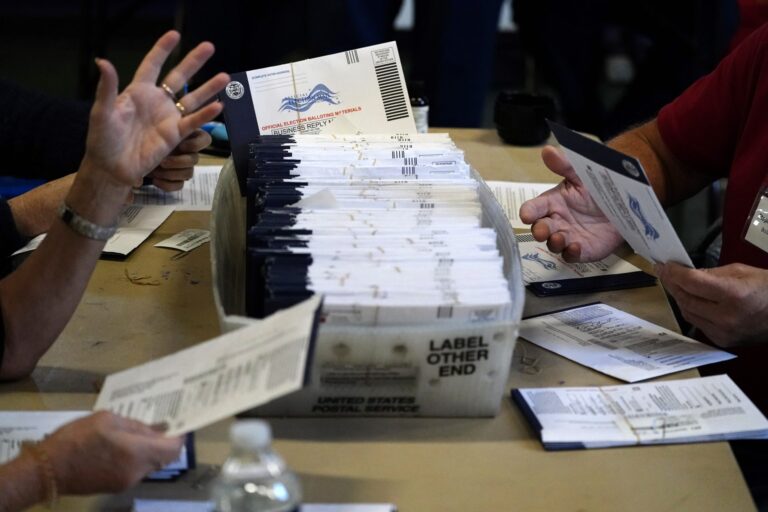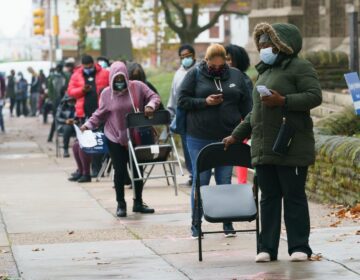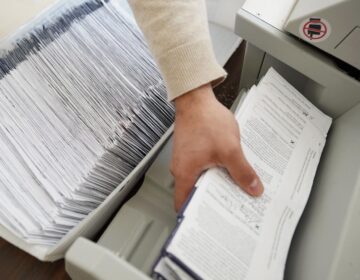Court blocks small number of ballots in Pennsylvania over ID
Trump campaign’s general counsel Matt Morgan called the order to throw out 10,000 ballots a “win” for the campaign.

File: Chester County election workers process mail and absentee ballots for the 2020 general election in the United States at West Chester University, Wednesday, Nov. 4, 2020, in West Chester. (Matt Slocum/AP Photo)
A Pennsylvania judge sided with President Donald Trump’s campaign Thursday and ordered counties not to count a tiny number of mail-in or absentee ballots for which the voter didn’t submit valid identification within six days after the Nov. 3 election.
The injunction issued by Commonwealth Court Judge Mary Hannah Leavitt deals with an as-yet unknown number of ballots that may number a few thousand, or less.
While the Trump campaign’s general counsel, Matt Morgan, called the order a “win” for the campaign, the ballots affected may not have been tabulated yet and are unlikely to affect the outcome of the presidential race in Pennsylvania.
The Associated Press called the presidential contest for former Vice President Joe Biden on Saturday after determining the remaining ballots left to be counted in Pennsylvania would not allow Trump to catch up.
Biden held an approximately 55,000-vote margin Thursday night. But Trump has refused to concede, and his campaign and Republican allies have several lawsuits pending in an effort to prevent Biden from winning Pennsylvania.
The court order affects a subset of about 10,000 ballots that arrived within a three-day period after polls closed Nov. 3, a period allowed by the state Supreme Court because of concerns over the pandemic and delays in the U.S. Postal Service.
Allegheny County, the state’s second-most populous county, did not have any ballots subject to the order, a spokesperson there said. Philadelphia had about 2,200 such ballots that may be subject to the order, a spokesperson there said.
In Thursday’s order, Leavitt agreed with a challenge by the Trump campaign and the Republican National Committee to guidance issued Nov. 1 by Pennsylvania’s top election official, Secretary of State Kathy Boockvar, a Democrat.
In that guidance, Boockvar advised counties to allow voters to provide the necessary identification within nine days after the Nov. 3 election, or through Thursday.
That three-day extension was strictly for voters whose ballots that had arrived within a three-day grace period after Election Day allowed by the state Supreme Court.
Leavitt, however, wrote that Boockvar lacked the authority to move back the deadline to provide identification by three days.
The deadline applies to registered voters who applied through the mail or in person for a mail-in or absentee ballot, but did not at the time verify their identity by providing a driver’s license number or the last four digits of their Social Security number.
Those voters are typically provided with a ballot, but are required to follow up with their county election office to provide either number for their ballot to be counted.

Get daily updates from WHYY News!
WHYY is your source for fact-based, in-depth journalism and information. As a nonprofit organization, we rely on financial support from readers like you. Please give today.





